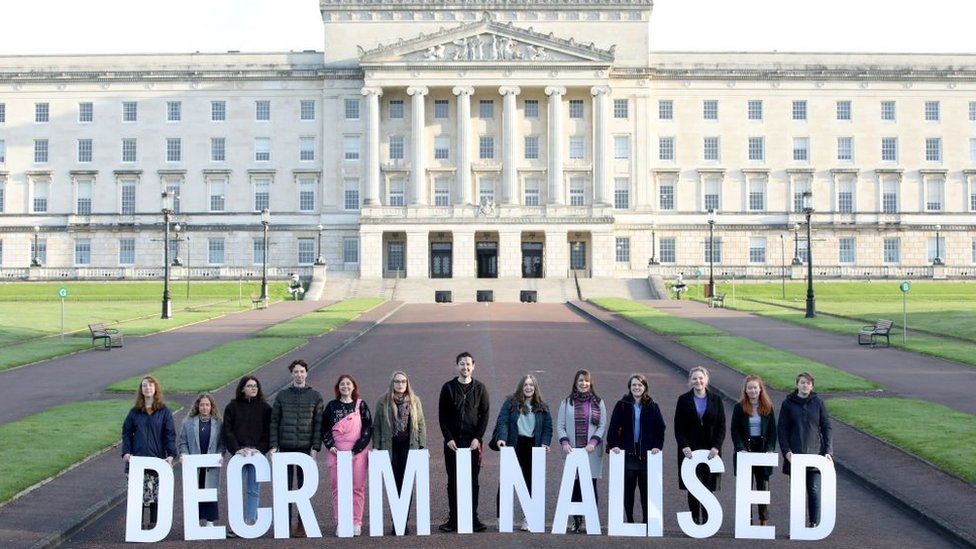Abortion in NI: Women subject to 'postcode lottery'
- Published

There is a postcode lottery for abortion services in Northern Ireland, Amnesty International has said.
The claim comes a year after abortion was decriminalised in Northern Ireland.
In March, the laws changed to permit abortions in a number of circumstances and health trusts have been providing services.
The Northern Trust had to close its early medical abortion service due to limited resources, leaving many areas without access, Amnesty said.
The human rights organisation said as a result, a third of NI, had been left without the service due to Health Minister Robin Swann's "failure to commission and fund services".
The Department of Health (DH) said it had legal advice that it was "not required to commission the relevant services, however registered medical professionals in Northern Ireland may now terminate pregnancies lawfully".
"The regulations require such terminations to be carried out on health and social care premises," a spokeswoman said.
She added decisions "remain to be taken" on the commissioning of abortion services in the health service and will be subject to a public consultation.
The department said it would "clearly be a matter for the executive and assembly" as well as the department.
Telemedicine
However Amnesty's NI campaign manager Grainne Teggart said women had been left in a "vulnerable and dangerous position".
She said the added pressure of the Covid-19 pandemic had left the trusts struggling to cope.
"Women who live in areas within the Northern Trust were expected to be transferred to other trusts but this is not happening due to a lack of capacity," said Ms Teggart.
A funded service remains in England but she said travel was "neither a safe nor viable option for many due to the pandemic".
She called on the health minister to "urgently step up and take action, including commissioning full and accessible services and introducing telemedicine".
Telemedicine is medical care away from the usual hospital or doctor's surgery - where health-related services and information are provided through technology.
In July 2019, MPs at Westminster voted to decriminalise abortion in Northern Ireland and create new laws.
Prior to that vote, abortion was only allowed in very limited circumstances.
The changes allow terminations in all circumstances in the first 12 weeks of pregnancy and beyond that in other situations with no term limits applying in cases of fatal fetal abnormalities.
Protests from anti-abortion campaigners in Northern Ireland have taken place before and after abortion was decriminalised.
The anniversary of the law change was described as a "dark day" by David Smyth, head of the Evangelical Alliance in Northern Ireland.
"We continue to advocate for the dignity and welfare of both women and unborn children," he said.
- Published9 April 2020
- Published31 March 2020
- Published31 March 2020
- Published22 October 2019